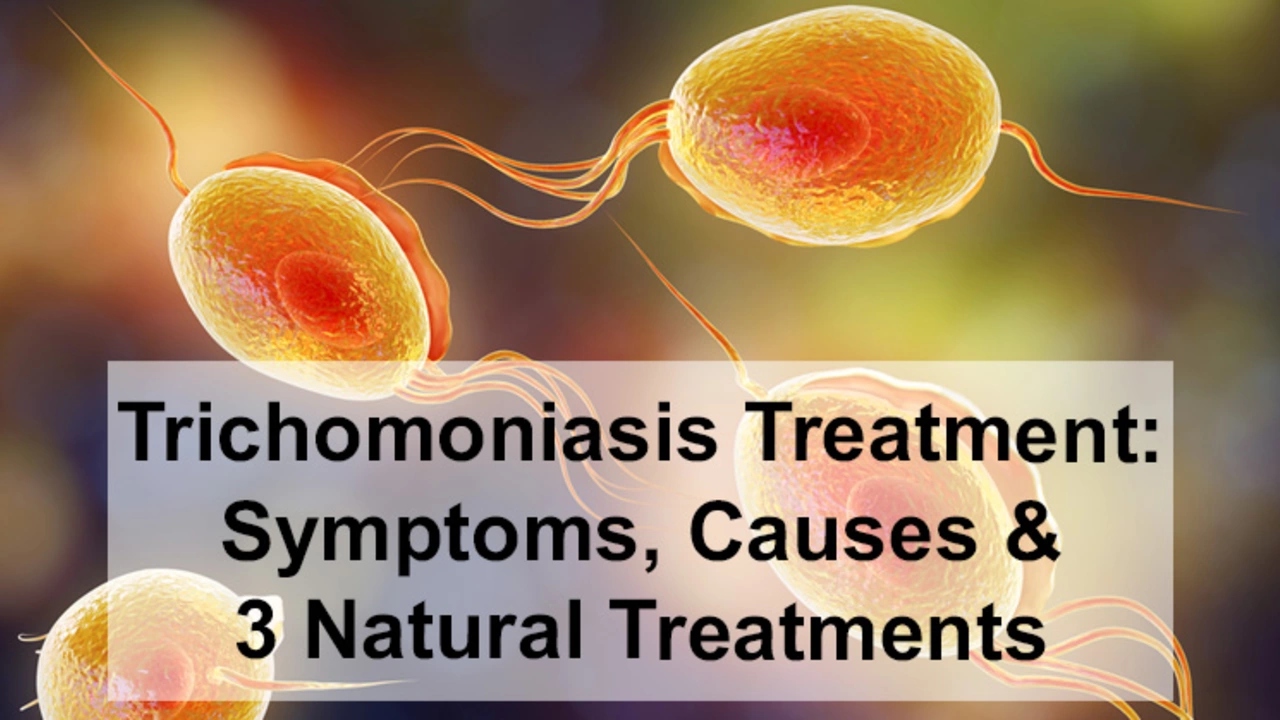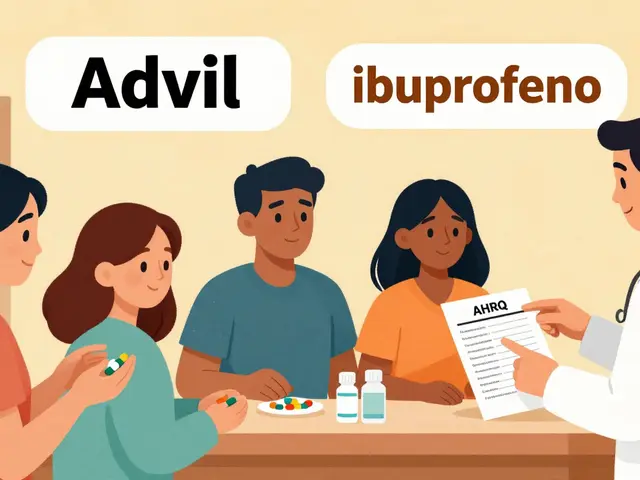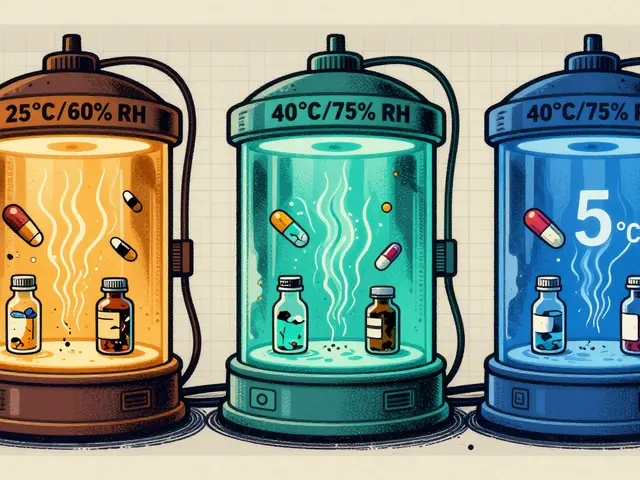Trichomoniasis: Signs, diagnosis, and treatment options for this common vaginal infection
Understanding Trichomoniasis
Trichomoniasis, commonly referred to as 'trich', is one of the most prevalent non-viral sexually transmitted infections in the world. It's caused by a parasite and can lead to severe health complications if left untreated. I want to help you understand more about this disease, its symptoms, how it can be diagnosed, and what treatment options are available.
What Trichomoniasis Is
Trichomoniasis is caused by a single-celled parasite known as Trichomonas vaginalis. It primarily affects the urogenital tract, particularly in women. This infection is commonly spread through sexual intercourse, but can also be contracted through sharing contaminated towels or bathing suits. Though it's quite common, it is also easily treatable once diagnosed.
Common Signs of Trichomoniasis
Many individuals infected with Trichomoniasis may not even realize they have the disease, as symptoms can often be mild or non-existent. However, when symptoms do appear, they can range from mild irritation to severe inflammation. Women may experience unusual vaginal discharge, discomfort during intercourse, and lower abdominal pain. Men, on the other hand, may experience symptoms such as burning during urination or ejaculation, or a discharge from the penis.
Diagnosing Trichomoniasis
If you suspect that you may have Trichomoniasis, it's important that you reach out to a healthcare provider as soon as possible. They can perform a physical examination and may take a sample of any discharge for further testing. The most reliable way to diagnose this infection is through laboratory testing of a sample taken from the vagina or penis. This can be done through a wet mount microscopy, a culture test, or a nucleic acid amplification test.
The Importance of Early Detection
Early detection and treatment of Trichomoniasis is crucial to prevent complications such as pelvic inflammatory disease, which can lead to infertility in women. In addition, pregnant women with Trichomoniasis are at a higher risk of delivering preterm or low birth weight babies. For men, the infection can cause prostatitis and other urinary tract problems.
Treatment Options for Trichomoniasis
Trichomoniasis is usually treated with antibiotics. Two of the most commonly used are metronidazole and tinidazole. These medications are usually taken orally in a single dose. It's crucial to take the medication exactly as prescribed by your healthcare provider, and to abstain from sex until the infection has completely cleared to avoid reinfection.
Preventing Trichomoniasis
The best way to prevent Trichomoniasis, and all sexually transmitted diseases, is to practice safe sex. This includes using condoms correctly and consistently, getting tested regularly for STIs, and maintaining an open and honest communication with your sexual partners about your sexual health.
Living with Trichomoniasis
Living with Trichomoniasis can be challenging, but with proper treatment, most people can completely eliminate the infection and avoid serious complications. It's important to follow your healthcare provider's treatment plan closely, and to get retested regularly to ensure the infection has not returned.
Understanding the Risk Factors
Certain factors can increase your risk of contracting Trichomoniasis. These include having multiple sexual partners, a history of other sexually transmitted infections, or a previous Trichomoniasis infection. It's important to understand these risks and take appropriate measures to protect your health.
Speaking with your Healthcare Provider
If you believe you may have Trichomoniasis, or if you are experiencing any of the symptoms mentioned above, it's important to speak with a healthcare provider. They can provide you with the necessary advice, tests, and treatment options to help you manage and ultimately eliminate the infection from your system.






6 Comments
Diane Larson
July 21 2023Trichomoniasis may seem harmless, but it can cause serious complications if ignored.
One of the biggest risks is the development of pelvic inflammatory disease in women, which can affect fertility.
For men, untreated infection can lead to prostatitis and persistent urinary discomfort.
The parasite is easy to detect with modern nucleic acid amplification tests, which have a high sensitivity.
A simple urine or swab sample sent to a certified lab can confirm the diagnosis within a day.
Early detection also helps prevent the infection from spreading to sexual partners.
Treatment usually involves a single dose of metronidazole or tinidazole, both of which are highly effective.
It is important to take the full prescribed dose, even if symptoms improve quickly.
Your partner should be treated at the same time to avoid re‑infection.
Follow‑up testing a few weeks after therapy ensures that the parasite has been fully cleared.
If symptoms persist, a repeat test can rule out treatment failure or a new exposure.
Using condoms consistently during intercourse dramatically reduces the chance of catching trich.
Regular STI screening, especially if you have multiple partners, is a key preventive strategy.
Pregnant women should be screened because trich can increase the risk of preterm birth.
Open communication with your healthcare provider about any unusual discharge or irritation is essential.
Remember, seeking care early not only protects your health but also supports the wellbeing of your community.
Michael Kusold
July 21 2023Just a heads up, u might want 2 get tested asap.
Jeremy Lysinger
July 21 2023Hey folks, catching trich early is a total game‑changer.
A quick test gets you back on track fast.
Stick to the meds and you’ll be good.
Stay safe and keep those check‑ups regular.
Nelson De Pena
July 21 2023Diagnosing trichomoniasis has become straightforward thanks to nucleic acid amplification techniques.
These tests can detect the parasite with over 95% accuracy from a simple swab.
Once confirmed, the recommended metronidazole regimen clears the infection in the vast majority of cases.
It is crucial to complete the full dosage and to avoid alcohol for at least 24 hours after taking metronidazole.
Additionally, informing and treating sexual partners simultaneously eliminates the risk of reinfection.
Wilson Roberto
July 21 2023In the tapestry of human health, sexually transmitted infections remind us of our interconnectedness.
Trichomoniasis, though often invisible, weaves its thread through the lives of many, shaping experiences in subtle ways.
Recognizing its presence challenges cultural taboos surrounding sexual dialogue and encourages openness.
The act of seeking testing embodies personal responsibility within a broader societal contract.
Treatment, while medically simple, symbolizes the power of contemporary science to restore balance.
Preventive measures such as condom use are not merely personal choices but communal safeguards.
Ultimately, confronting trich head‑on fosters a healthier, more informed community.
Narasimha Murthy
July 21 2023While the overview aptly covers the clinical aspects of trichomoniasis, it neglects a thorough discussion of resistance patterns emerging with metronidazole use.
Recent studies have documented sub‑optimal response rates in certain populations, a nuance that warrants inclusion.
Moreover, the emphasis on condom use, though valid, overshadows the potential role of routine community‑based screening programs.
A balanced exposition should also address socioeconomic barriers that impede access to diagnostic services.
In sum, the article would benefit from a more critical appraisal of treatment efficacy and public‑health implementation strategies.